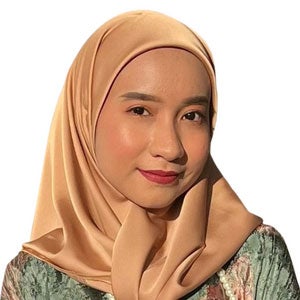Recycle your unwanted clothes, give it to those in need
Take a moment to look at your wardrobe and think to yourself, do you actually wear every single item? If not, it might be wise to sort out the ones you don't need for donation.
One place to do so is with Kloth Cares, which is a women-led social enterprise that aspires to become the catalyst of textiles, clothing and plastics circular economy in Malaysia, Singapore and Australia, as stated in its website.
Kloth Malaysia co-founder Nik Suzila said they currently have more than 300 recycle bins for the public to discard their clothes and some of them were placed in accessible areas like petrol stations and mosques.
With Shell as one of its partners, the public can drop their unwanted items at their nearest gas station and the items will be collected to be sorted at the sorting centre.
“I will give you a simulation where you drive to Shell and drop off your unwanted textile.
“We usually would service the bins twice a week as there were lots of unwanted clothes and we want to make sure it won’t overflow.
“Then we will send it to our partner Life Line Clothing and we will start the sorting process there,” she said.
According to Nik Suzila, the extensive sorting process was done by trained professionals and the clothes would be sorted to several qualities.
She said the clothes would be divided into good quality, moderate and non-wearable.
“Most of these items will be exported to developing or third world countries and also locally as well,” she said.
Based on the experiences in gathering fabric waste, co-founder Sarah Kedah shared that the majority of the items they received were clothes.
“From all these categories, we gathered 55 to 60 per cent were garments then followed by household textiles, shoes and small contributions for accessories.
“Almost 95 per cent of the items people sent us were still wearable and we focus on reuse rather than donation,” she said.
Moreover, Kloth Cares also provided a women empowerment programme or Kloth Women Up where they focused on upskilling B40 women by providing discarded fabrics.
“We will send them to upcycle into a new product, which is made from denim, cotton and even though their skills are very limited we try to upskill them.
“Provide templates and get them more comfortable with how to make it and only then can we upskill them,” she further said.
As for the unwanted and non-wearable clothes, they will repurpose the water-absorbent material into industrial wiping cloth.
Looking into Malaysians' awareness in regard to fabric recycling, Nik Suzila shared she was amazed with Malaysian communities were well-informed and aware of the recycle process.











